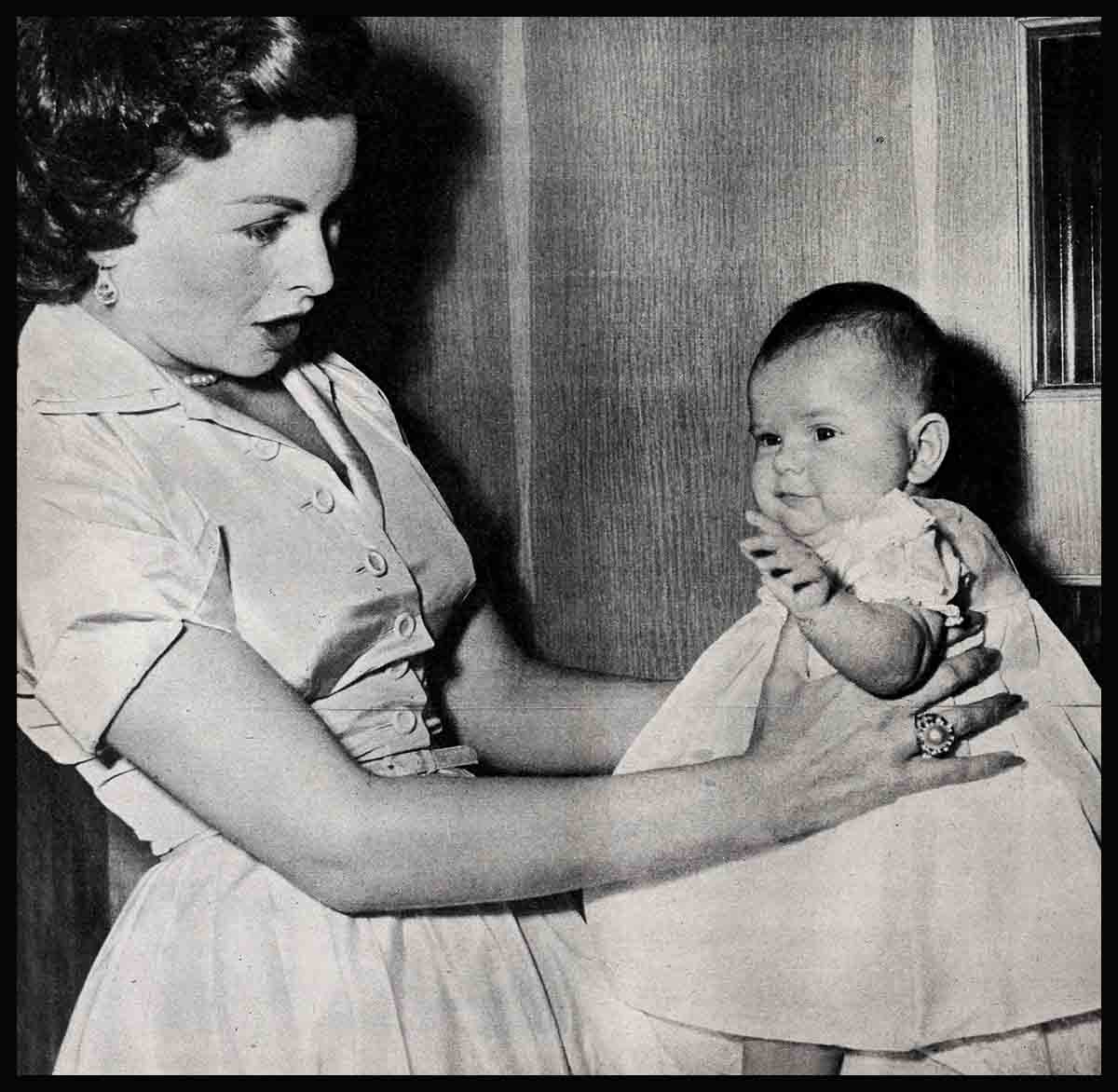
Seventh Heaven—Jeanne Crain & Paul Brinkman
When Jeanne Crain and Paul Brinkman were married on December 31, 1945, the Hollywood anvil chorus went to work with a will. They said that Jeanne was an idealistic dreamer who had been over-sheltered by a devoted family and that she didn’t have the faintest idea how to go about building a successful marriage. This was summed up in the statement, “That cloud-seven-beauty doesn’t know what it’s all about.”
As for Paul, he was diagnosed as one hundred per cent charm lad and playboy with no. intention whatsoever of settling down.
Said the wisenheimers, “It won’t last a year, give or take a few weeks.”
On December 31, 1952, Jeanne and Paul Brinkman will celebrate the seventh anniversary of one of the superlatively satisfactory marriages in the world. Why stop, geographically or romantically, in Hollywood for comparison?
During those seven years, Jeanne has starred in twelve pictures, and has borne four children. During her spare time she has nurse-maided a pet baby lion, helped to train a young falcon, supervised the building and enlarging of the Brinkman hilltop home, and has indulged her talent for painting.
During those seven years, Paul has established a fifty per cent interest in three sons and a daughter, and has established a hundred per cent interest in his own company, an engineering concern employing an engineering staff of four plus a crew of forty-five, and occupying over 80,000 square feet of factory space. Even superficial evidence would indicate that life goes well with the Brinkmans. But one would have to know them well to understand how deep is their contentment, how firm are the bonds of their union. And how bright the sparks can fly on occasion.
As a bride, Jeanne exasperated her spouse because she refused to admit now and then that she had never visited this particular restaurant or that particular She always gave the impression, by silence if by no other means, that she was no stranger to the arts of horseback surf boarding, diving, distance swimming or skiing. Especially skiing.
She regarded Paul as the epitome of sophistication and she couldn’t bear to seem naive in his presence. The attitude produced some strange incidents, one of which occurred on Mt. Rose, near Reno.
Jeanne and Paul had gone north for the skiing, and the first morning of their stay they put on snow togs, ate a hearty breakfast and reported to the ski lift along with a full quota of other guests.
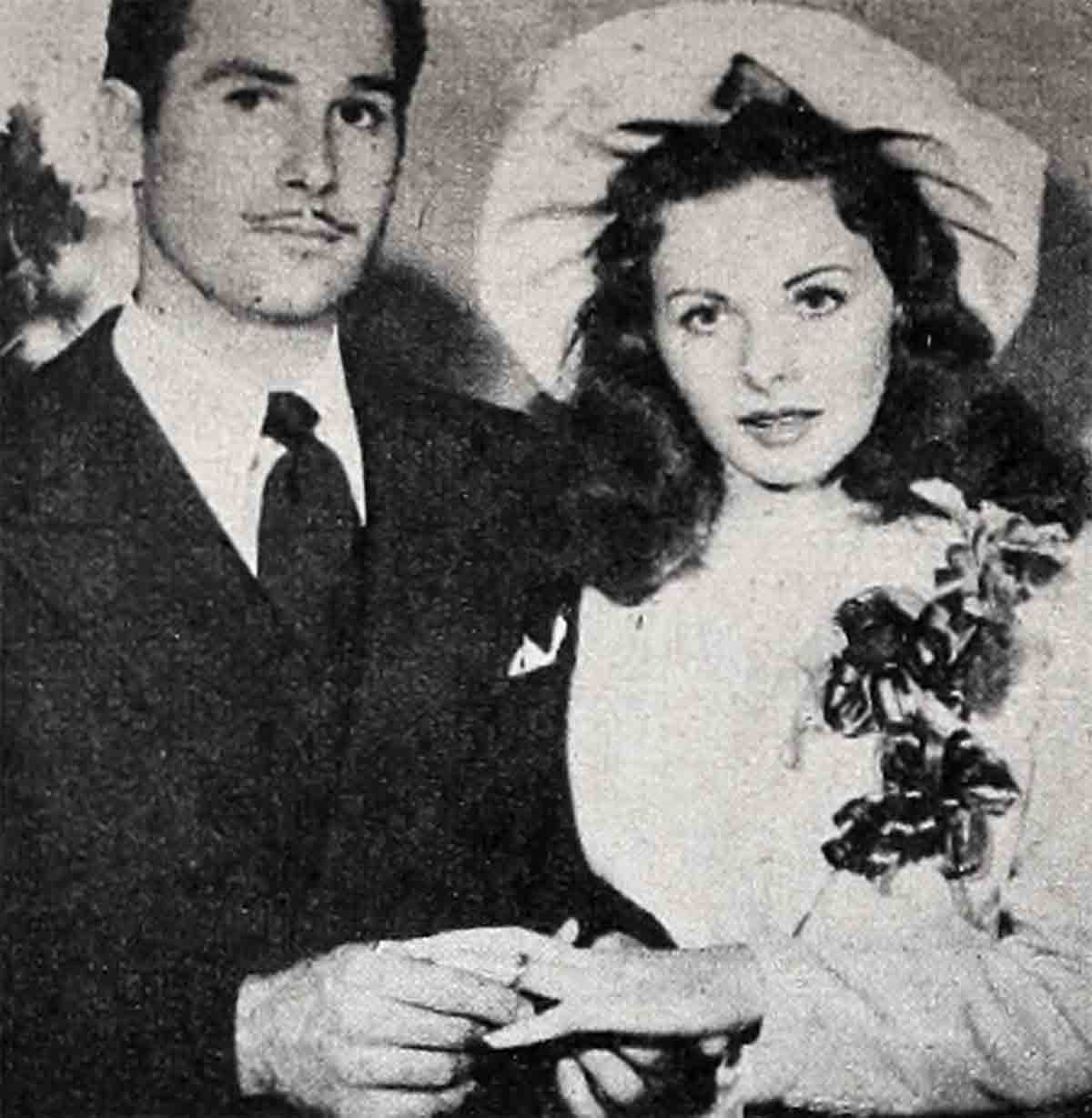
The lift was a T-type, a tricky arrangement which requires a skier to rest his weight, at the hips, against the crossbar of the inverted T, and to be pushed upward with his weight balanced on his skis.
A T-lift operates best if the two people occupying each T are about the same weight, but a couple in love seldom bother with so mechanical a detail. Besides which, Jeanne refrained from admitting to Paul that she had never before ridden a T-lift and so didn’t know that unless she kept her skis tracking straight and maintained constant balance with her partner, she would bounce both of them off, and that this loss of weight would upset everyone else on the lift.
And so. . . .
Luckily, the upset happened quite near the summit, but even so there was enough herringbone to have started a garment factory by the time the last skier had finished the ascent, and Mrs. Brinkman was the least popular guest at the lodge.
She dropped down a few more notches in popular approval when she gazed down the steep, snow-glazed mountain and squeaked to Paul, “I can’t go down there. I can’t. I’ve never been down a ski slope like this in my life!”
“Why didn’t you tell me that before we came up?” demanded her spouse.
Jeanne couldn’t have answered to save her life, but she did manage to avoid the usual last resource of the embarrassed bride: she didn’t cry.
“Never mind,” said one of the skiers who had been dumped. “You don’t have to ski down. There’s a back trail—very scenic—which leads to the shelter house at the foot of the mountain. Why don’t you walk down? We can meet you there for hot chocolate.”
Loaded down with skis and ski poles, she set out on an alternately snow-drifted, rock-jutted path cut between towering evergreens. Her boots grew heavier by the yard and her equipment began to wear grooves in her shoulders. When she walked in sunshine she thought she was going to roast, and when she walked in shade, she thought she would freeze.
Three hours and seven miles later she limped up to the shelter house.
A little cheer went up from skiers who had disciplined a neophyte and were now ready to admit her to the order. The roaring fire was comforting and so were Paul’s arms.
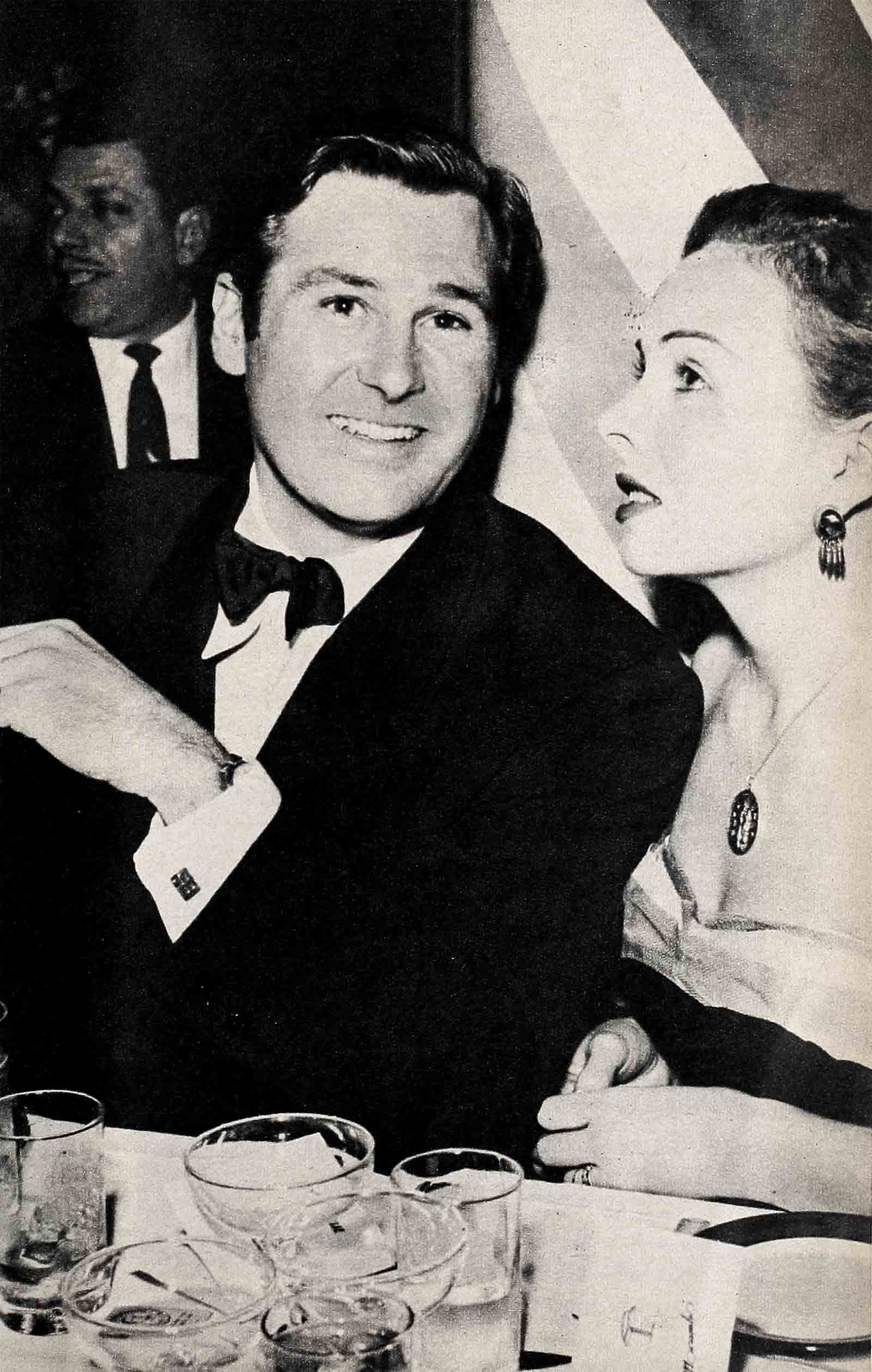
The following year, when Jeanne and Paul went to Sun Valley, Paul rode the ski lift to the top of Dollar Mountain and swooped down repeatedly, while his wife found a pleasant little hillock which offered exactly the mild type of slope she wanted.
That evening at dinner when Marty Arrouge (husband of Norma Shearer and a champion skier) asked Jeanne how she was getting along, she answered happily, “I’m not much of a skier, but I have fun. Paul spent the day on Dollar Mountain, but I . . . well, I didn’t go up Dollar Mountain, and I didn’t go up Half-Dollar Mountain. I spent the day on a course I think of as Two-Bit Hill.”
“I have news for you,” grinned Marty. “We call that rise in the landscape Nickel Mound.”
Afterward Jeanne confided to Paul, “At least I’ve learned to admit what I don’t know. I don’t pretend any more. You’ve taught me that.”
In turn, Paul has picked up a lesson or two from Jeanne. A businessman to the core, Paul likes to figure out ways to save money. His commercial enterprises indicate that his plans are usually effective, but his slips have made family history.
When the Brinkmans decided to level a new site on their seven-acre hillside and build a studio for Jeanne, Paul secured quotations from several bulldozer operators and found that preparing the necessary flat area would cost nearly three hundred dollars.
“I could do it myself some Saturday morning,” announced Paul, aghast.
“Better leave it to an expert, dear,” suggested Jeanne, a great believer in actors acting, engineers engineering, and bulldozers bulldozing.
“Simple job. Anybody could do it,” said Paul airily.
He rolled out at four one morning, having made arrangements to borrow a tractor with bulldozer attachment, and laboriously brought the incubus back through city streets and up the winding roads to the lot. There, before the worshipful gaze of his three sons, Paul set to work.
Jeanne watched for a time, but finally had to return to the house to check on the welfare of Jeanine. A few moments later Paul appeared at the door, quivering, his face ashen, his hair matted with soil.
The tractor had fouled one thread in an old tree stump and had rolled over twice, lodging—as fate would have it—against a scrub oak tree. Except for this barrier, the tractor would have crashed to the bottom of the canyon, probably killing Paul.
As it was, it cost nearly a thousand dollars to hire a giant crane to rescue the tractor and bulldozer.
Jeanne and Paul spent their honeymoon at Furnace Creek Inn, one of the fabulous resorts in California’s far-flung Mojave Desert. As they lounged around the pool one afternoon, Jeanne said to her new husband, “I don’t think I could endure any more happiness. My heart is filled to the brim with love for you. There’s no room for anything else.”
Time passed and on Easter Day, April 6, 1947, Paul, Jr. was born. During the months that followed, Jeanne dutifully read all the books about babies and some works on child psychology, and tried to apply the sensible suggestions. When friends asked Jeanne how she differentiated between Paul, her husband, and Paul, her son, when speaking to them, she said, “It’s easy. My books insist that a mother shouldn’t talk baby talk to a child and I imagine it’s a sound theory. So I call my husband ‘Mommy’s ’ittle sweetums’ or some such foolish term, and I call our boy ‘Paul.’ ”
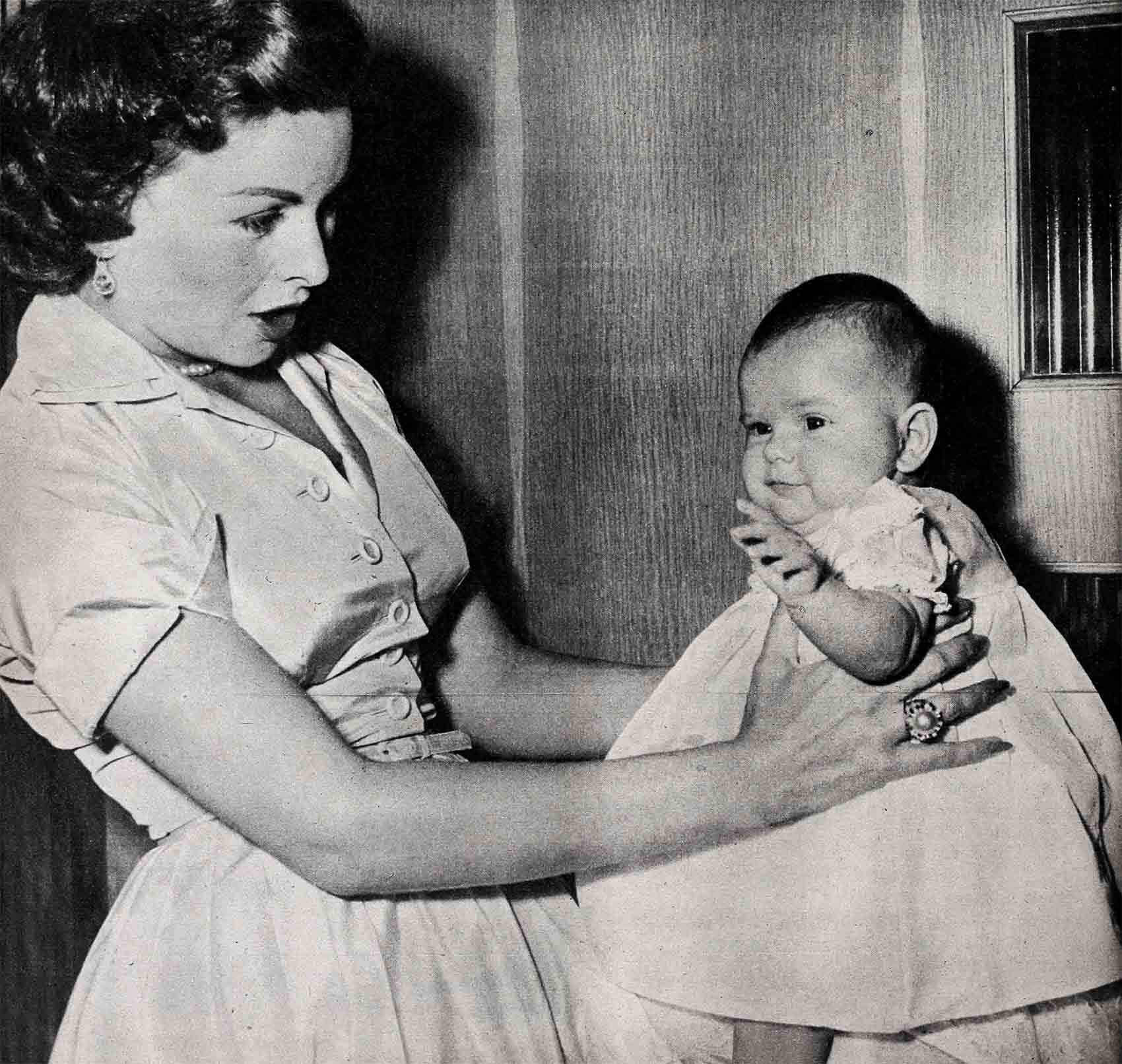
To celebrate the birth of Paul, Jr., Paul, Sr. gave Jeanne an orchid plant which was placed in an advantageous position among the seven acres of Brinkman property. The plant thrived. Currently Jeanne gets a kick out of acknowledging compliments when she wears orchids on state occasions, by saying, “Thank you, I’m proud of them. They come from our own backyard, you know.”
Paul, Jr. is now five, and a highly responsible human being. Always an alert child, he has a knack for applying the things he has been taught. When he was at the grabby stage, Jeanne used to caution him, “You mustn’t touch that, Paul. It’s fragile. That means it will break.”
Not long ago Jeanne overheard him coaching his younger brother, Timmy, about proper treatment of baby sister, Jeanine. “You mustn’t touch her, Timmy. She’s fragile. That means she will break.”
Paul can and does correct the situation when he finds Jeanine in a sodden condition in her bed or playpen, and he is trying to teach her to talk. She responds to him with the usual infant goos, which he translates as highly dramatic narrative.
Paul is allowed to participate in his parents’ discussion of family plans because he seems, Jeanne says, “like a college student to us. People who have teen-age children think of our Paul as a baby, but, to us, he’s almost adult. That’s because he is the oldest of the four children, of course.”
Paul, Jr., is, in appearance and personality, the image of his dad, even to his hair problem. He has an extremly thick mop and, as a very small boy, wore it in a Dutch bob. However, once he had passed the age of four, he decided that the style was unbecoming to a man, so he rebelled. “It has to be cut like Daddy’s,” was his ultimatum. Like Daddy’s it was cut, and like Daddy’s it revealed a cowlick.
Jeanne brushed, combed, and made a stocking sleeping cap for her son, but the results were negligible. Finally she said to Paul, “You’ve been through this. You should give me some hints, or at least some encouragement. How long was it before your hair learned to behave?”
Paul considered. “I think it was in pretty good condition by the time I was thirty.”
Young Paul has one additional problem: he is torn between deciding upon one of two careers—whether to become a bandit or a milkman.
One afternoon, Paul and his next oldest brother, Michael, were playing alternate games of shoot-’em-up and deliver-the-milk while Jeanne was entertaining a caller. Thinking that the friend would be amused by a report of the boy’s apprenticeship, Jeanne called Michael and asked him to tell the guest what he was going to be when he grew up.
Michael favored the caller with a straightforward smile and piped, “I am going to be a elephant.”
This story points up the great difference between Paul, Jr. and Michael. Whereas Paul is practical in his approach to life, Michael—born January 21, 1949—is fanciful. He is inclined to stand before a window, one foot crossed over the other, and regard the view for long periods of time. Gentle in play, he simply walks away from Paul when that young gentleman grows too robust.
Michael likes to assume the names of various animals and insists that his identity be respected by his mother. He told Jeanne one day, “I’m a big black horse,” and refused to come to luncheon when she called him by name.
“Michael isn’t here. There is only a big black horse.”
“In that case, will the big black horse kindly come to luncheon?” inquired his flexible parent.
This routine became so commonplace that when Michael finally came to the table one evening with the announcement that he was a boy named Michael, Paul, the parent, paraphrased one of the best lines from Mary Chase’s play “Harvey” by saying to the family group, “Well, what do you know! No one having dinner with us except people.”
The Number Three son in the Brinkman family is Timothy, born August 2, 1950. Timmy’s vocabulary was doubled by the birth of his little sister. Until she came along, his most used term was something best spelled “gunk-gunk” which was used to designate milk, water, soup, puréed vegetables and a dip in the swimming pool.
The first time he set eyes on Jeanine, he gasped, “Doll-doll” and that has been his name for her ever since. Naturally, when the baby takes her bottle, Timmy explains the situation as “Doll-doll gunk-gunk.”
Jeanine, the fourth sprout, is the image of her mother and gives every promise of carrying on the Crain family tradition of great beauty. Her birth was preceded by an incident which hints at the miraculous.
To mark their fifth anniversary, Paul gave Jeanne a gold religious medal honoring Our Lady of Guadalupe. Set in the medal (which Jeanne wears on a gold neck chain) were five diamonds to mark five years of marriage, and three rubies to celebrate the birth of three sons.
When Jeanne and Paul were in New York in the autumn of 1951, they were guests of Cardinal Spellman at luncheon. Jeanne asked the Cardinal if he would bless the medal, which he agreed readily to do, adding, “Next year Paul will have to add an emerald to commemorate the birth of a daughter.”
Even so, when Jeanne was assembling a layette for Baby Brinkman Number Four, she didn’t buy one pink garment. She felt certain that she was to have another son, and her doctor agreed with her. When Miss Brinkman arrived on March 5, 1952, she was supplied with a pink Ridinghood outfit by Gail Patrick. This was the little girl’s first feminine possession.
The Brinkmans have recorded their family history on sixteen-millimeter film. Not long ago they were running some of the ten thousand feet of movies which have been taken during the past seven years. Jeanne said wonderingly, “Remember—when we were first married? I said my heart was so filled with love for you, Paul, that there wasn’t room for anyone else? I was wrong. Every time a new child has come along, I’ve found plenty of room. I must have an expanding heart.”
This is probably the best possible summary of the first seven years of the Jeanne Crain-Paul Brinkman marriage.
THE END
—BY FREDDA DURLEY
Jeanne Crain is now appearing in “Twentieth’s “O. Henry’s Full House.”
It is a quote. PHOTOPLAY MAGAZINE DECEMBER 1952


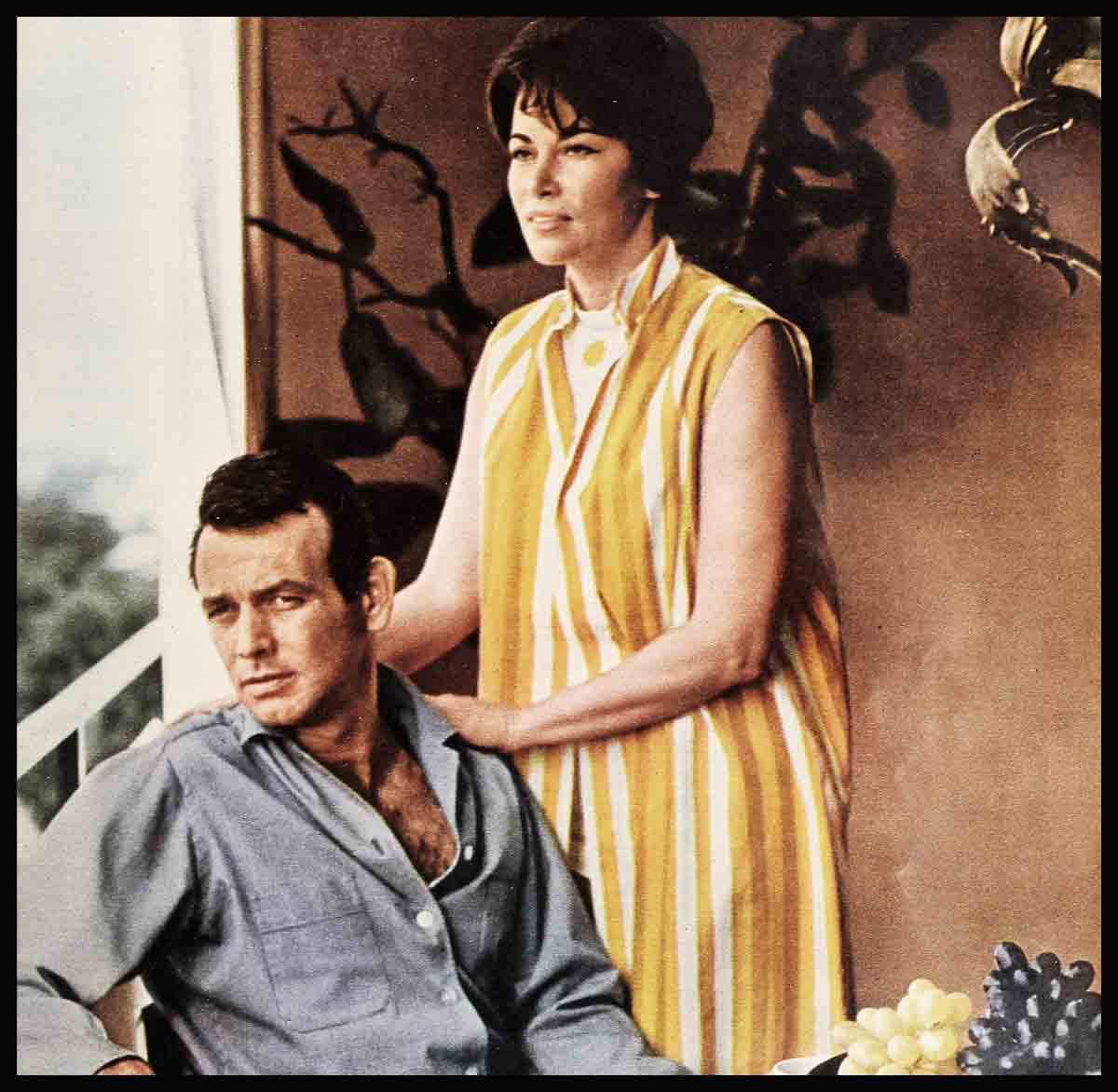

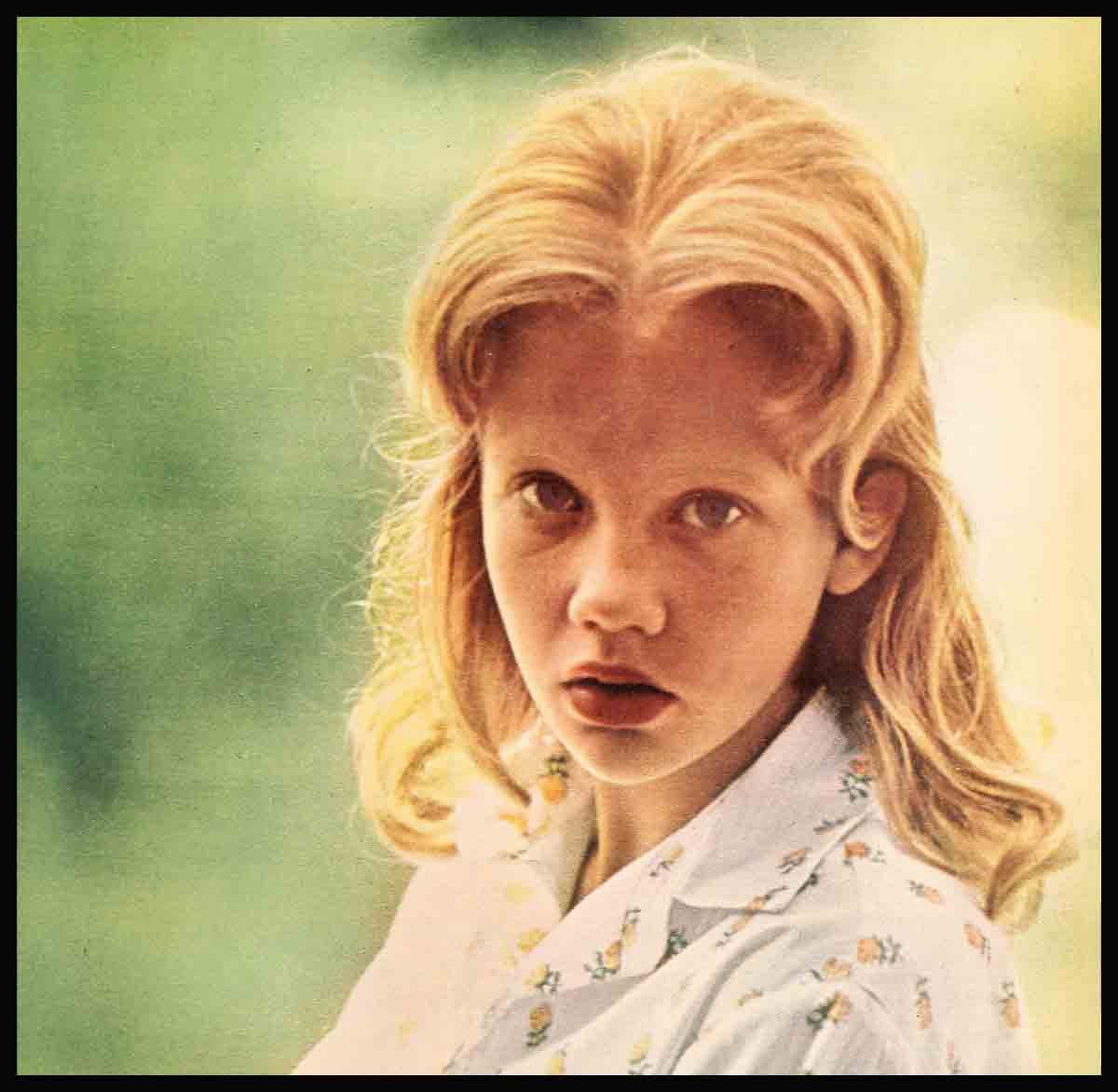
vorbelutr ioperbir
4 Temmuz 2023You have mentioned very interesting details! ps nice site. “Hares can gamble over the body of a dead lion.” by Publilius Syrus.